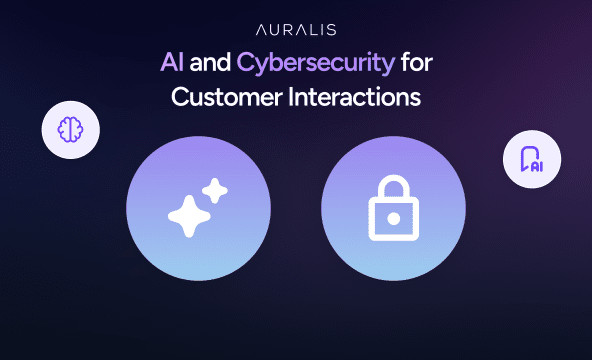AI-driven security measures
AI-driven security measures are transforming the way businesses protect their digital assets, infrastructure, and customer data. By leveraging artificial intelligence (AI) technologies, organizations can enhance their cybersecurity efforts, detect threats in real-time, and automate responses to security incidents. These measures enable businesses to stay one step ahead of cybercriminals and safeguard their operations against increasingly sophisticated attacks.
One of the primary benefits of AI-driven security measures is their ability to detect and prevent cyber threats in real time. Traditional security systems often rely on predefined rules and signatures to identify malicious activity, which can be ineffective against new or unknown threats. AI, on the other hand, uses machine learning algorithms to continuously analyze vast amounts of data and identify patterns of behavior that may indicate a potential security breach. This allows AI systems to recognize anomalies, such as unusual network traffic or unauthorized access attempts, and take immediate action to prevent further damage.
AI-driven security measures also help businesses respond to threats more quickly and efficiently. By automating threat detection and response, AI can reduce the time it takes to identify and mitigate security risks. For example, AI systems can automatically block suspicious IP addresses, isolate compromised devices, or revoke access credentials in the event of a breach. This level of automation not only improves response times but also reduces the burden on human security teams, allowing them to focus on more complex or high-priority tasks.
Another key advantage of AI-driven security measures is their ability to continuously learn and adapt to evolving threats. Machine learning algorithms can be trained on historical data to recognize new attack vectors and adapt to changing tactics used by cybercriminals. As AI systems process more data, they become better at predicting and preventing future attacks. This proactive approach to cybersecurity helps businesses stay ahead of emerging threats, rather than reacting to them after they have occurred.
AI can also enhance the effectiveness of traditional security tools, such as firewalls, intrusion detection systems, and antivirus software. By integrating AI with these tools, businesses can improve their ability to detect zero-day vulnerabilities, advanced persistent threats (APTs), and other sophisticated cyberattacks. AI systems can provide deeper insights into network traffic, user behavior, and system logs, enabling security teams to identify hidden threats that might otherwise go unnoticed. This layer of intelligence makes traditional security measures more robust and capable of handling the ever-growing complexity of the cybersecurity landscape.
In addition to real-time threat detection and response, AI-driven security measures can also be used to strengthen authentication and access control. AI-powered biometric authentication methods, such as facial recognition and fingerprint scanning, offer more secure and convenient alternatives to traditional password-based systems. These AI-driven methods are harder to bypass, providing an extra layer of protection against unauthorized access. Moreover, AI can analyze user behavior and flag any deviations from normal patterns, further enhancing access control mechanisms. For instance, if an employee’s login activity suddenly shifts to an unusual location or device, AI can trigger a security alert or automatically lock the account.
AI can also help businesses strengthen their defenses against phishing attacks, which remain one of the most common and effective forms of cybercrime. AI-powered email filters can detect phishing attempts by analyzing email content, subject lines, and sender information to identify malicious intent. Machine learning models can be trained to recognize patterns in phishing emails, such as fake URLs or suspicious attachments, and automatically flag or block these messages before they reach the recipient’s inbox.
Furthermore, AI-driven security measures are crucial for ensuring compliance with data protection regulations, such as the General Data Protection Regulation (GDPR) and the California Consumer Privacy Act (CCPA). AI can assist businesses in monitoring data access and usage to ensure that personal data is handled in accordance with regulatory requirements. By automating data classification, monitoring, and encryption, AI helps businesses maintain a higher level of compliance while minimizing the risk of data breaches.
Despite the many advantages of AI-driven security measures, there are also some challenges to consider. One concern is the potential for adversarial attacks on AI systems themselves. Cybercriminals may attempt to manipulate machine learning algorithms or introduce malicious data to mislead AI models. Therefore, businesses must ensure that their AI systems are robust and resilient against such attacks. Regular updates, testing, and auditing are necessary to maintain the integrity of AI-driven security measures.
Another challenge is the need for skilled professionals to manage and oversee AI-based security systems. While AI can automate many aspects of cybersecurity, human expertise is still required to interpret AI-generated insights, make strategic decisions, and handle complex security incidents. Organizations must invest in training their security teams to work effectively with AI tools and understand the capabilities and limitations of these technologies.
In conclusion, AI-driven security measures are revolutionizing cybersecurity by offering faster, more accurate threat detection, automated response capabilities, and continuous learning to stay ahead of emerging threats. By leveraging AI, businesses can enhance their defenses, protect sensitive data, and reduce the risk of cyberattacks. These advanced security technologies provide proactive protection against a wide range of cyber threats, from phishing and malware to advanced persistent threats and data breaches. As cyber threats continue to evolve, AI-driven security measures will play an increasingly important role in safeguarding digital assets and ensuring the security of organizations worldwide.

- Articles
-
 Amy
Amy
- 7 min read
